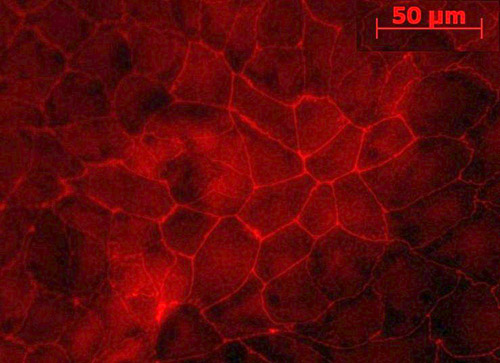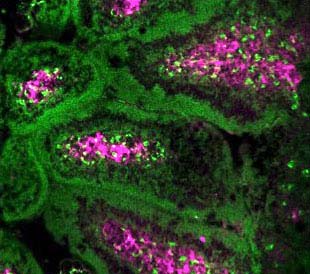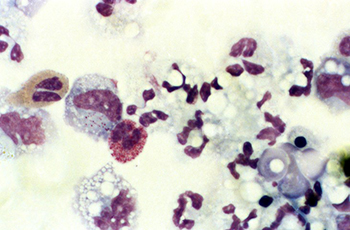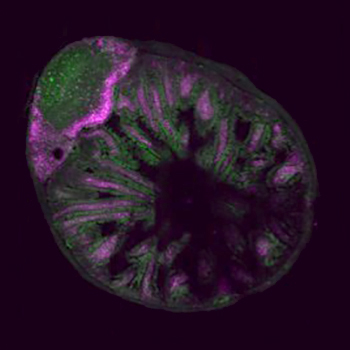Research Projects
 Utilizing tissue culture and immunophenotyping to understand the impact of lifestyle
Utilizing tissue culture and immunophenotyping to understand the impact of lifestyle
In infancy, the infant gut is encountered by large amounts of gut commensals, i.e. beneficial bacteria such as Bifidobacteria as well as human milk components. Their role in development of the host immune system is not well understood. Simultaneously, the airways are stimulated by inhaled particles differently in farming and urban environments. Utilizing epithelial cell lines, monocyte-derived dendritic cells, reporter cell lines, and enteroids, our laboratory is uncovering the first-line of responses by gut and lung epithelium and immune cells to the infant gut microbiome, environment and human milk, including pathogen-associated molecular patterns. Samples from infant cohort are used to further correlate findings at the bench to markers of infant systemic and mucosal immunity, including T, B and T regulatory cells and humoral responses in infants born to farming lifestyle or urban homes.
 Uncovering the Role of Infant Microbiome in Development of Atopic Disease
Uncovering the Role of Infant Microbiome in Development of Atopic Disease
Microbiome plays a key role in the development of infant mucosal immunity in the first years of life. Our research is engaged in analyses of the total microbiome and specific commensals and pathobionts as well as the host antibody response in the gut, skin, nasal, and oral compartments during early childhood. These data combined with clinical data from an infant cohort study is a powerful tool for understanding the trajectory of developing microbiome in two different cohorts with different lifestyles and risk of allergic diseases.
 Protective Immune Components in Human Milk
Protective Immune Components in Human Milk
We are particularly interested in understanding the role of immunologically active components in breast milk, including antibodies, immunocompetent cells, cell mediators, and microbiome in the prevention of food and other allergies in childhood. Our previous work found high levels of immunoglobulin A (IgA) in human milk as a potential factor protecting infants against development of cow's milk allergy. We also identified a panel of proinflammatory and regulatory cytokines as well as specific human milk oligosaccharides in breast milk that were associated with protection against food allergies. Our ongoing studies are characterizing the human milk microbiome and metabolites as well as their regulation by maternal diet and environment.
 Role of Food Antigens in Human Milk
Role of Food Antigens in Human Milk
Dietary antigens from maternal diet, such as peanut, milk and egg proteins, are detected in human milk, and we have previously associated maternal ingestion of cow’s milk with induction of allergic symptoms in most allergic infants. However, the role of dietary antigens in human milk in development of oral tolerance or, on the contrary, allergic sensitization in breastfed infants is unknown. Our laboratory is developing sensitive assays for measurement of the levels, kinetics and function of dietary antigens in human milk.